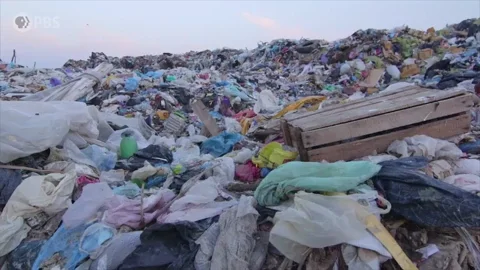
This logo isn't an ad or affiliate link. It's an organization that shares in our mission, and empowered the authors to share their insights in Byte form.
Rumie vets Bytes for compliance with our
Standards.
The organization is responsible for the completeness and reliability of the content.
Learn more
about how Rumie works with partners.
Shop Sustainably at the Grocery Store
Living a sustainable lifestyle can happen in many places, but you can start at the grocery store.

Shop Locally
If you're able, try to shop locally from farmers markets, smaller stores, and vendors in your area. Food from outside your local area has to be shipped and transported to your nearest supermarket.
Curbing the transportation of your food will help limit the amount that transportation contributes to greenhouse gas emissions, which reached 29% of total emissions in the United States in 2021.

Bring Reusable Shopping Bags
Every year, 5 trillion — 5,000,000,000,000! — plastic bags are made worldwide. In the United States alone, 100 billion — 100,000,000,000! — plastic bags are thrown away into the garbage every year.
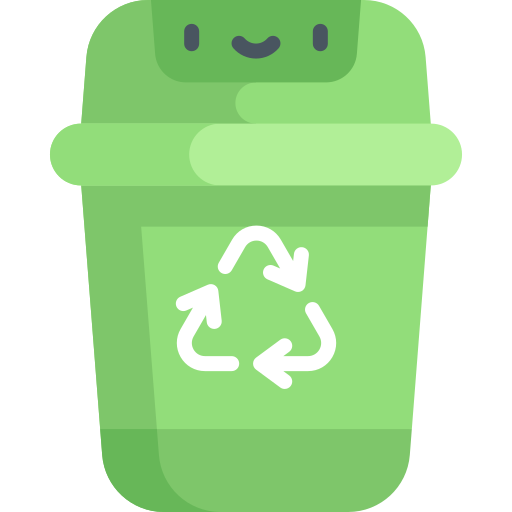
Recycling these plastic bags is no better. When plastic bags go through recycling machines, they tangle and break the machinery, and they're often not picked up because the sensors don't recognize the color of the bag.
It's important to limit this kind of single-use plastic, so if you don't have reusable bags, you can use produce boxes if your grocery store provides them!
Sustainability Includes Food Storage
Keep Your Food from Spoiling
When covering the food you've partly eaten or just cooked, avoid using plastic wrap. Research has found that 80 million Americans over a 6-month period in 2019 had used at least one roll of plastic wrap, while another 5.3 million used 10 or more boxes.
Instead, you can use a variety of alternatives, like:
silicone bowl covers
beeswax wraps
other storage containers
Buy Bulk
Buying bulk, or buying food in larger quantities, is a great way to live sustainably. If you decide to buy bulk, consider freezing the food you won't eat so you don't waste it. You can get creative with your food storage by:
canning
drying
pickling various meats, fruits, and vegetables
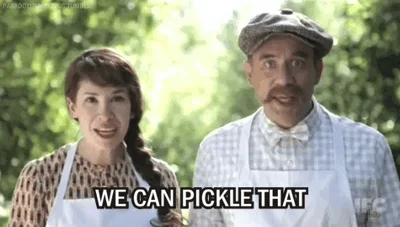
This is a great way to prevent food from going to waste, but you can always just eat it if you have an opportunity to.

Consider Composting
When food goes bad or you have food scraps, compost it if you can — especially if you have some flowerpots or a small vegetable or fruit garden. It's another great way to be more sustainable.
Composting allows food to return to the earth instead of a dump site where decomposition may take longer. You can use this compost for replenishing nutrients in the soil. This will make the food in your garden more nutritious, and your plants healthier, too.
Quiz
Your friend, Jon, has some fruit that will be going bad soon. He asks you for help. What would you recommend? Select all that apply.
It's important to try your best not to let food go to waste. Follow the link above to find creative ways to prevent food from going to waste! Or, if you're less patient, you can just eat it. If it goes bad before you can do any of these, try to compost it if you can. Freezing fruit works best when it's ripe, so it's too late for freezing if it's about to go bad.
Cook Sustainably, Too!
Plan Your Meals
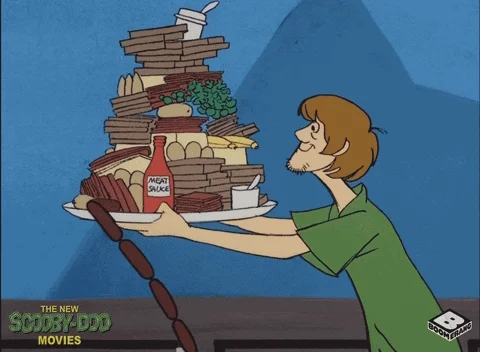
Meal planning is a great way to save money (by not buying take-out), but it's also super sustainable because it eliminates the single-use paper and plastic products that delivery and take-out restaurants use.
By planning out your meals, you can use those ingredients that may be going bad before they go to waste.
Cook in Bulk

If you like saving time and don't mind having the same meal multiple times, cooking in bulk helps you live sustainably. By cooking in large batches, you save energy, which means that you aren't producing as many harmful greenhouse gases.
With all that extra time, you can think up some pretty tasty and creative recipes, or even make recipes using chatGPT!
Cut Down on Meats and Dairy
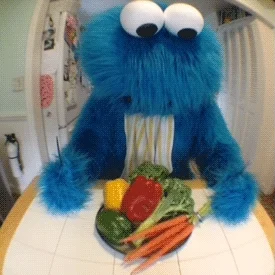
If you're anything like me (and the Cookie Monster above), this may be a hard step. However, animals often produce more harmful greenhouse gases like methane and nitrous oxides, so by not eating these foods, your carbon footprint decreases.
You can consider meat alternatives. However, these are made in factories and produce a lot of waste, too, making them not a great choice for sustainably.
But, if you shop locally and buy seasonal fish or high-protein vegetables available in your area, you can choose more sustainable goods for cooking.
Take Action
You might feel a lot of fear, stress, and guilt when you try to live a sustainable lifestyle, and that's ok! Remember that you're only human and you're trying your best.
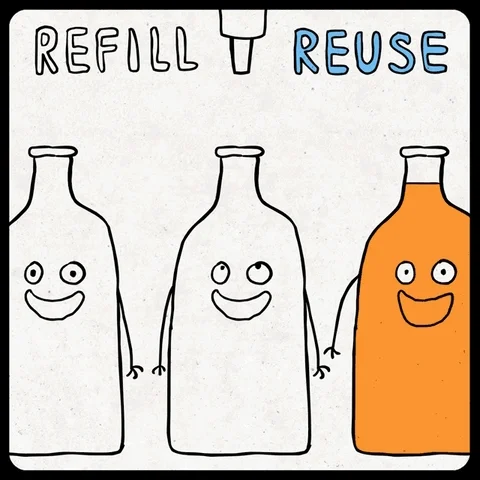
If you make one small step every day, it helps. Your future self and future generations will thank you for it.
Here are some other things you can do moving forward:
This Byte has been authored by
Adam Palczewski
LMS Administrator
